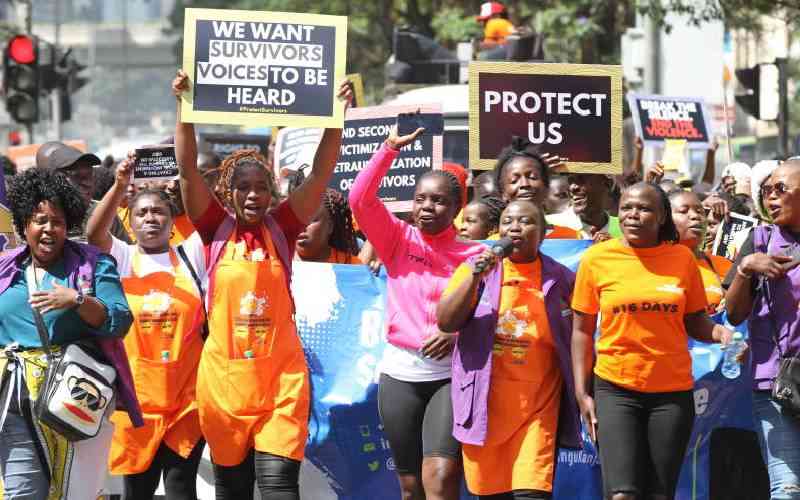×
The Standard e-Paper
Kenya’s Boldest Voice

The chaos and violence of the 2007 elections may be a distant memory for most but it remains a constant nightmare for the hundreds - if not thousands - of survivors who bear wounds of the senseless conflict in their broken and violated bodies.
This is more so for survivors of Conflict Related Sexual Violence (CRSV) during that dreadful period in our political history.